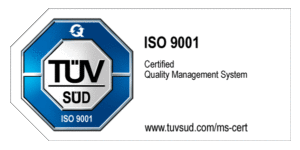potting materials
epoxy resins / polyurethane / silicones / thermally conductive pastes
epoxy resin processing
High-modulus adhesion, high temperature resistance and durability – where these are needed, epoxy resin is always used. These are reaction resins which, when mixed with a hardener (as an additive or reaction partner) become a high-quality, duroplast plastic. A macromolecular polyether with very good temperature and chemical resistance is created.
key properties
- Lightweight construction and vehicle bodywork are good examples for the use of epoxy resins in dispensing and potting technology. They are used when temperature resistance and protection against harmful influences are key.
- Processing epoxy resins or potting resins allows the incorporation of pigments and other additives
- Epoxy resins are extremely versatile, e.g. as reaction paint and stove enamel, adhesive, moulding material for components in electronics, corrosion protection, electrical insulation of parts such as capacitors, circuit boards, spark plugs and collectors.
questions and anwers
How is epoxy resin processed in industry?
A: High-modulus bonding, high-temperature resistance, or material durability – epoxy resin processing is used in these applications. These are reactive resins that, when mixed with a hardener, react to form a high-quality thermosetting plastic.
How is epoxy resin applied industrially?
A: After the resin and hardener have been mixed in a ratio defined by the manufacturer to form a homogeneous mixture, it can be applied to the desired surface. It’s important to apply the resin evenly to ensure a smooth and level surface.n.
What is epoxy resin used for?
A: Epoxy resins are extremely versatile, used for example as adhesives, molding compounds for components in electrical engineering and electronics, corrosion protection, or insulation for electronic components. Lightweight construction and bodywork are good examples of epoxy resin applications in dosing and potting technology. These are used when temperature resistance and protection from other damaging influences are crucial.
What is the difference between silicone, epoxy resin, and PU potting compounds in industry?
A: Different reactive materials are used in industry: silicones, epoxies, and polyurethanes. Silicones protect sensitive electronics well but are more expensive and can cause off-gassing. Epoxies are chemically and mechanically strong, but they are not ideal for very sensitive electronics. Polyurethanes are cost-effective, elastic, but less temperature-resistant than epoxies or silicones.
What is meant by precise casting of epoxy resin with dispensing technology?
A: Precise casting of epoxy resin with dosing technology refers to the exact, bubble-free, and repeatable dosing of resin and hardener in the correct mixing ratio. dosmatix relies on innovative, automated systems for the highest process safety, efficiency, and material savings in industrial applications.
contact us
direct contact
sales(at)dosmatix.com
phone: +49 8783 9667 530



